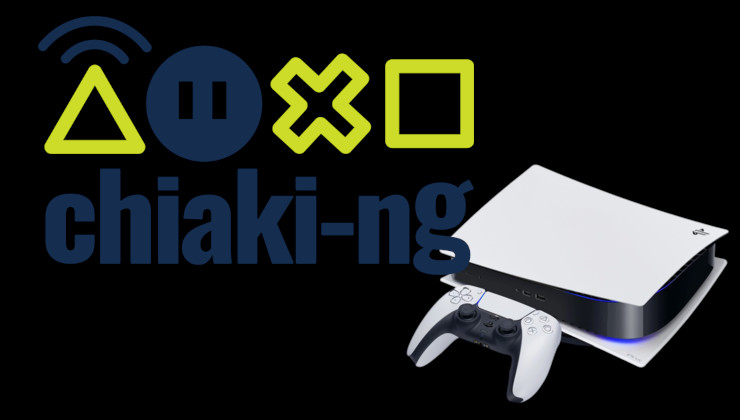After killing off and selling off various studios and causing lots of job losses, Embracer Group have put out their latest annual report and they have big plans for AI.
Embracer Group control the likes of THQ Nordic, PLAION, Coffee Stain, Amplifier Game Invest, DECA Games, Easybrain, Asmodee Group, Dark Horse Media, Freemode and Crystal Dynamics – Eidos. They have around 106 game development studios under their belt.
It was only a matter of time of course until they started talking up AI, as with other major game developers and publishers, and basically every big company that exists — they're all trying to shove AI into something so they can say "hey look we have AI too!".
Embracer think AI and large language models (LLMs) will empower their developer teams and say they don't want AI to replace people. From the annual report in their Risk and Mitigation overview it states:
AI has the capability to massively enhance game development by increasing resource efficiency, adding intelligent behaviors, personalization, and optimization to gameplay experiences. By leveraging AI, we create more engaging and immersive experiences that provide each player with a unique, dynamic, and personalized experience. We also see great opportunities for AI in game development speed, logistics and planning. Embracer Group also understands the potential risks associated with the use of AI. Our aim is to empower our employees with AI applications.
So what they've done is create a "Group AI Policy" that includes various guiding principles, risk assessment, and a risk framework that they're implementing across their companies with the idea being "human empowerment". Here's what Tomas Hedman, Head of Privacy & AI Governance at Embracer Group, had to say about it:
"Certainly, one of the major risks for a company is not to use AI, as this would mean a competitive disadvantage vis-à-vis other industry players. Most companies will move forward on AI integration in different ways. For us, it is the way that we do this that is the most critical element.
We do not want to replace people with AI, we want to empower them. This is the core of our human-centric approach to leveraging the potential with AI.
It’s not just that AI enables our developers to do even more, and to become more efficient on certain tasks, it will also open up coding to a broader group of developers. Entry into the industry might be easier for individuals with disabilities who, for instance, cannot use a keyboard as easily as others.
AI is trained on historical data, which tilts in a certain direction. As a result, you can end up with imbalanced automated decision-making. Let’s say you’re building a village. If you use AI for this, depending on how it’s trained and the decisions it takes, you may end up with a village with a demography that displays some sort of imbalance.
As AI models become more powerful, we can leverage their capacity also in the creative process, for example, by identifying inconsistencies in scripts and storytelling. There will be tremendous benefits for our creative teams regarding scriptwriting, image creation, idea generation, quality control, and more. And, as models become more human-like, the interaction between players and AI-supported functions will be much more dynamic. If in a game scenario you bargain, AI can remember this the next time. That makes the whole gaming experience much more interesting and lifelike."
It's worth noting that in the last GDC Survey, it showed that 31% of devs were already using AI.
What are your thoughts on this?
A monkey!........shakesperean monkeys hitting lots of buttons at hyperspeed
Well, in theory perhaps, but I've definitely noticed a shift in corporate behaviour that has fairly closely tracked the "shareholder value" revolution, and which involves a whole lot of share buybacks replacing a whole lot of R&D and other longer term strategies.Well, not more greedy exactly . . . but more reliably greedy, and often more shortsightedly greedy. Activist shareholders tend to want returns NOW, this quarter. There's less room for personal or institutional style or for long range plans. Valve probably couldn't operate the way it does if it went public.This describes most publicly traded corporations. Their lifeblood is money. They don't care how they acquire it nor do they care about the non-financial costs incurred while doing so.The problem with Embracer is that they're not in the business of making games, making art. They're in the business of making money. They don't care how. They don't care the games apart from them being their current vehicle of making money.
That's every game company that is (or is owned by) a company on the stock market. They are happy about an inferior product as long as it improves the bottom line.
And also most private companies, there is nothing in making it public that makes a company more or less greedy.
But it's certainly true that many private firms are just as bad. Some of the most destructive, short-term-oriented companies are the so-called "private equity" firms.
Share holders only have a say if they can muster up a majority of the votes. So the risk is actually much higher that you get one greedy new person at a private company than you can gather enough greedy share holders to make a difference in how the company is run.
The man issue is that many companies goes public to use the shares for things (like Embracer that uses their shares to buy game studios) which means that they have an incentive to keep the share price high. But if you don't do that and instead use it for what it was intended for (aka to share the risk) then there are no such incentive.
Aka in the end it's the people that is greedy so we all loose by default :)
Which happens because people at the C level in the company are having personal incentives to do so since the company have used their shares as bonuses to management. All of this is possible with private companies as well, however since there are no market to determine the share price there are no reason to do various stuff to inflate the share price so yes there are ofc far more opportunities for a public company to do things like this.
On the other hand a private company have far more power over decisions (since we moved from a form of democracy to pure dictatorship) which in turn increases the risks there if/when greedy people are put into a position of power.
Which is why I ended it with the problem actually being people and not necessary the company structure although some structures might concentrate the greed of individuals.
Talking about Embracer in particular I think this is less greed and more pure survival. They did miss a massive investment that where supposed to finance the next cycle of development and to add on top of that the Russian invasion of Ukraine bit Embracer in the ass with Saber:s Russian legacy forcing them to divest a profitable part of the company.
"It was the best of times, it was THE BLURST OF TIMES?"shakesperean monkeys hitting lots of buttons at hyperspeed
(I guess those are Dickensian monkeys?)







See more from me